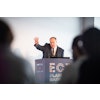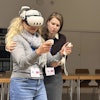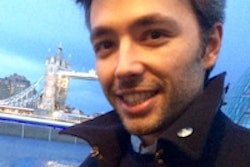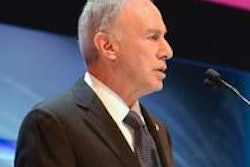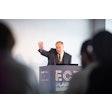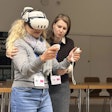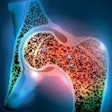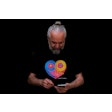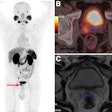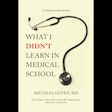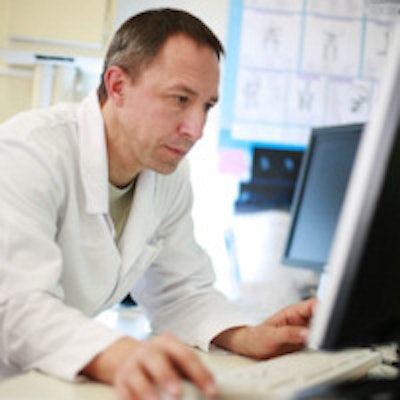
A shortfall of radiologists in the U.K. is putting a strain on departments across the country, and bolstering services with a fresh injection of imaging specialists has never been more important, according to local experts.
Research from the U.K. Royal College of Radiologists (RCR) shows the nation has fewer radiologists per capita than other European countries, and, moreover, many consultant radiologist posts are vacant. The RCR has responded to this situation by organizing a special two-hour session on "Working in the UK" at ECR 2015 in Vienna. It will begin on 5 March at 4 p.m..
Despite this year's 10% increase in radiology training residencies, these doctors will not become consultant radiologists until 2020. Meanwhile, the demand for U.K. radiology services will continue to rise inexorably if the 10% year-on-year annual increase in MRI and CT scan numbers of the past decade continues, the RCR believes.
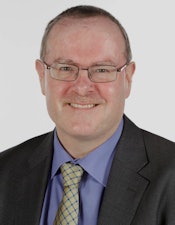 Dr. Richard FitzGerald is convinced that radiologists will find working in the U.K. professionally and culturally enriching.
Dr. Richard FitzGerald is convinced that radiologists will find working in the U.K. professionally and culturally enriching."MRI and CT exam demand in the U.K. has been relentlessly increasing. The quantitative increase in the number of images per exam to be interpreted is harder to measure but is also significantly higher than in 2004," said Dr. Richard FitzGerald, vice president of the Faculty of Radiology at the RCR in London.
Furthermore, patient management is increasingly reliant on imaging because 1 in 6 of the population has multiple chronic medical illnesses, noted a recent BMJ publication (20 January 2015). Furthermore, the U.K. Health and Social Care Information Centre 2013 Survey found that about half of the population in England takes prescription drugs.
"Patients are presenting with increasingly complex multimorbidities. This means that imaging has become the first-line investigation as so much information can be obtained from the scan compared with that obtained by clinicians doing time-consuming history taking and physical examination," he explained. "Evidence suggests that a patient's outcome is better if admitted on a weekday rather than at the weekend, further increasing 7/7 demand on radiologists."
ECR 2015, which is on track to receive 11,000 radiologists in March, provides an ideal opportunity to encourage other qualified radiologists to consider a career in the U.K., FitzGerald added. While British patients need fluent English-speaking radiologists irrespective of where in the world they qualified, those trained and specialist-registered in the European Union will probably find the U.K.'s General Medical Council registration quicker, he noted.
The ECR session will cover various aspects of working in the U.K., including practical tips presented by Dr. Christiane Nyhsen from Sunderland and also cultural adaptation presented by FitzGerald himself.
"My talk will raise specific issues that should be considered by a radiologist considering a career in the U.K. and also by U.K. radiologists assessing foreign applicants and the type of induction that may be necessary," he said. "Pre-employment preparation both by British employers and foreign radiologists will yield dividends in personal and departmental happiness, productivity, patient outcomes, and retention."
The last thing the RCR desired was for radiologists who came but didn't stay long due to adjustment problems. However, even radiologists who only wish to work in the U.K, for several years would find it a professionally -- and culturally -- enriching experience, according to FitzGerald.
He lauded the National Health Service (NHS), the largest universal coverage public health system in the world, as an ideal environment for radiologists to work in.
"It is wonderful to be part of a system where care is free at the point of delivery based on patient need and not ability to pay. Quality, safety, educational, and administrative aspects are exemplary; the equipment base is good; and with a large population size, the opportunities to subspecialize are manifold. Most radiologists get the chance to do both general radiology and develop special interests," FitzGerald said.
He praised the NHS multidisciplinary meetings as an excellent basis for holistic patient care and an opportunity for radiologists to receive feedback from other colleagues. He also cited good teamwork within departments among the radiologists and radiographers, as well as an easy and professionally rewarding liaison with hospital clinicians and general practitioners.
But with an influx of foreign radiologists, will there be a surplus in 2020 when the current residents qualify? FitzGerald thinks not. Demand for radiology shows no sign of flattening in the U.K. He believes that the 10% increase in trainee numbers doesn't get near to addressing anticipated demand growth.
An information sheet that will list useful Web links for those considering relocation will be handed out at the ECR 2015 session and will also be available to those who can't attend by emailing [email protected].

